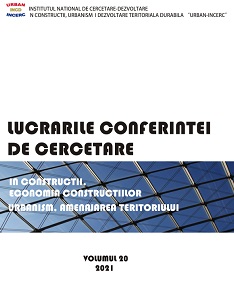Procesul de digitalizare și crearea de „smart identity” - guvernarea de tip bottom-up din perspectiva conservării identitare a orașelor viitorului
The process of digitalization and creation of smart identities; bottom-up governance through the lens of conserving the identity of future cities
Author(s): Oana Nadina Nedeianu
Subject(s): Human Geography, Regional Geography, Applied Geography, Governance, Policy, planning, forecast and speculation, Economic development, Socio-Economic Research
Published by: INCD URBAN-INCERC
Keywords: digitalisation; smart city; bottom-up approach; governance; smart identity;
Summary/Abstract: The digital transformation of the 21st century radically changes the way we live together. In addition to the obsessive attachment we have developed to devices that keep us connected every second of our lives, the challenges of this era force us to use technology to our advantage. A term we often hear is Smart City, defined by the European Community as the place where the use of digital solutions streamlines traditional services for the benefit of residents and businesses. These cities use innovation to provide the city with open and transparent governance solutions, where the community is heard, understood and plays an active role in building its own environment. If the designer of the future city will have to take into account identity and if we consider identity a process by which people self-identify with spaces, then in order to design quality spaces we will have to co-opt users as collaborators of the design process. These solutions become possible with the help of information and communication technologies (ICT), which completely change the paradigm of communication between civil society and public administration. This paper aims to capture, through case studies, how administrations and communities use these technologies for open and flexible forms of governance, to identify the challenges in this regard and how certain obstacles could be overcome.
- Page Range: 29-42
- Page Count: 14
- Publication Year: 2021
- Language: Romanian
- Content File-PDF

